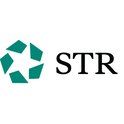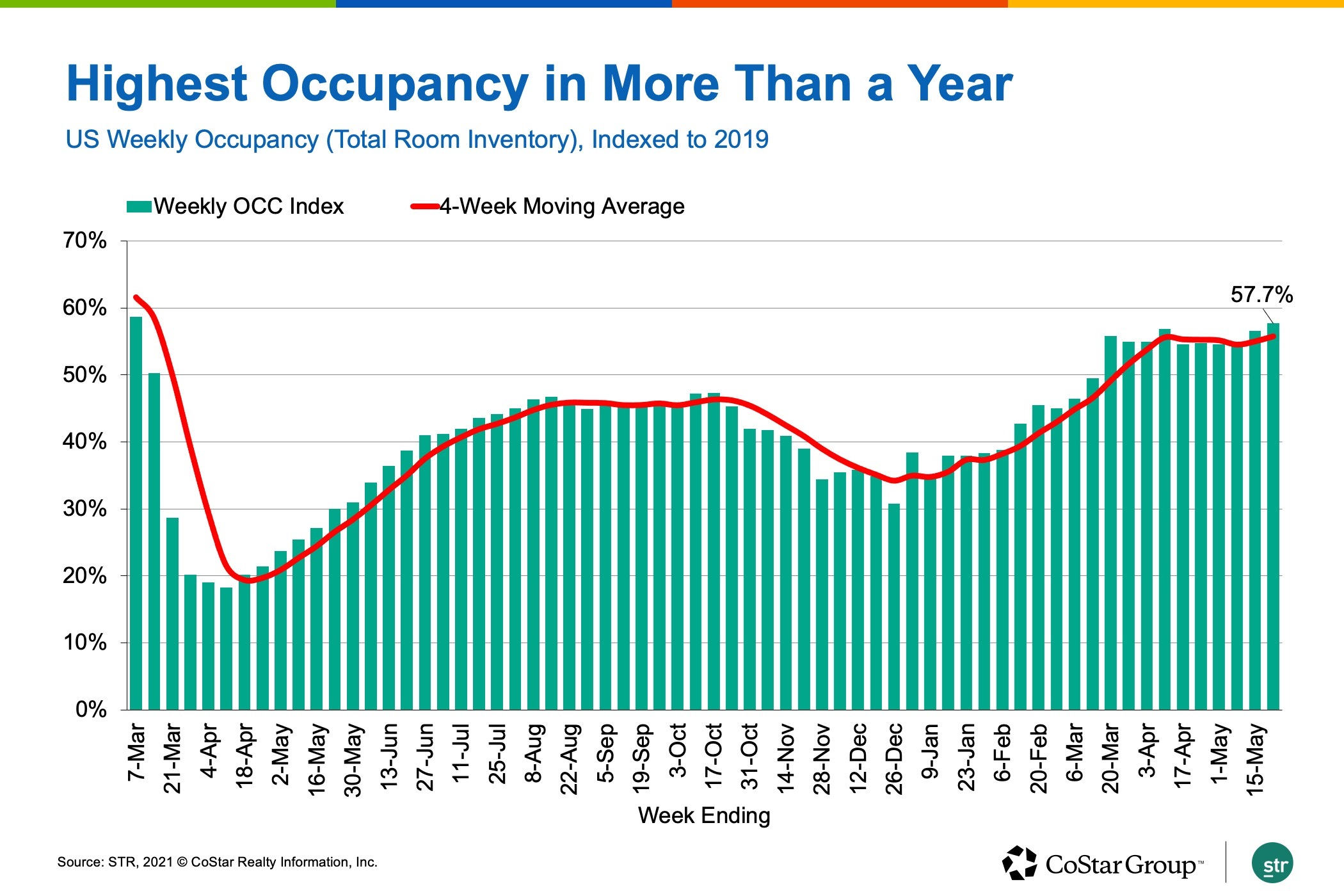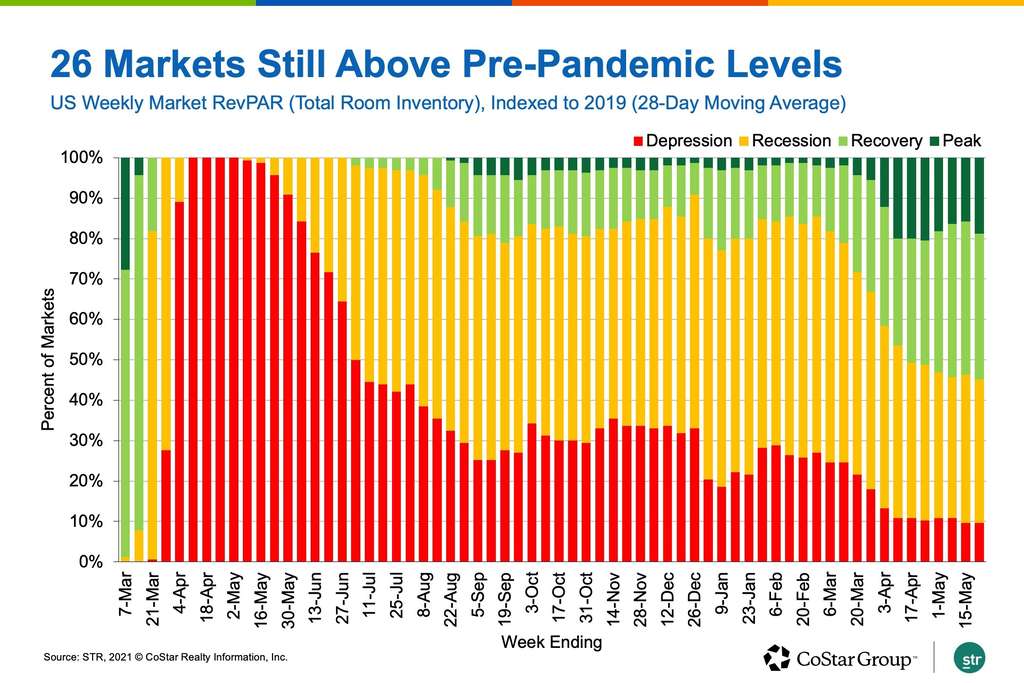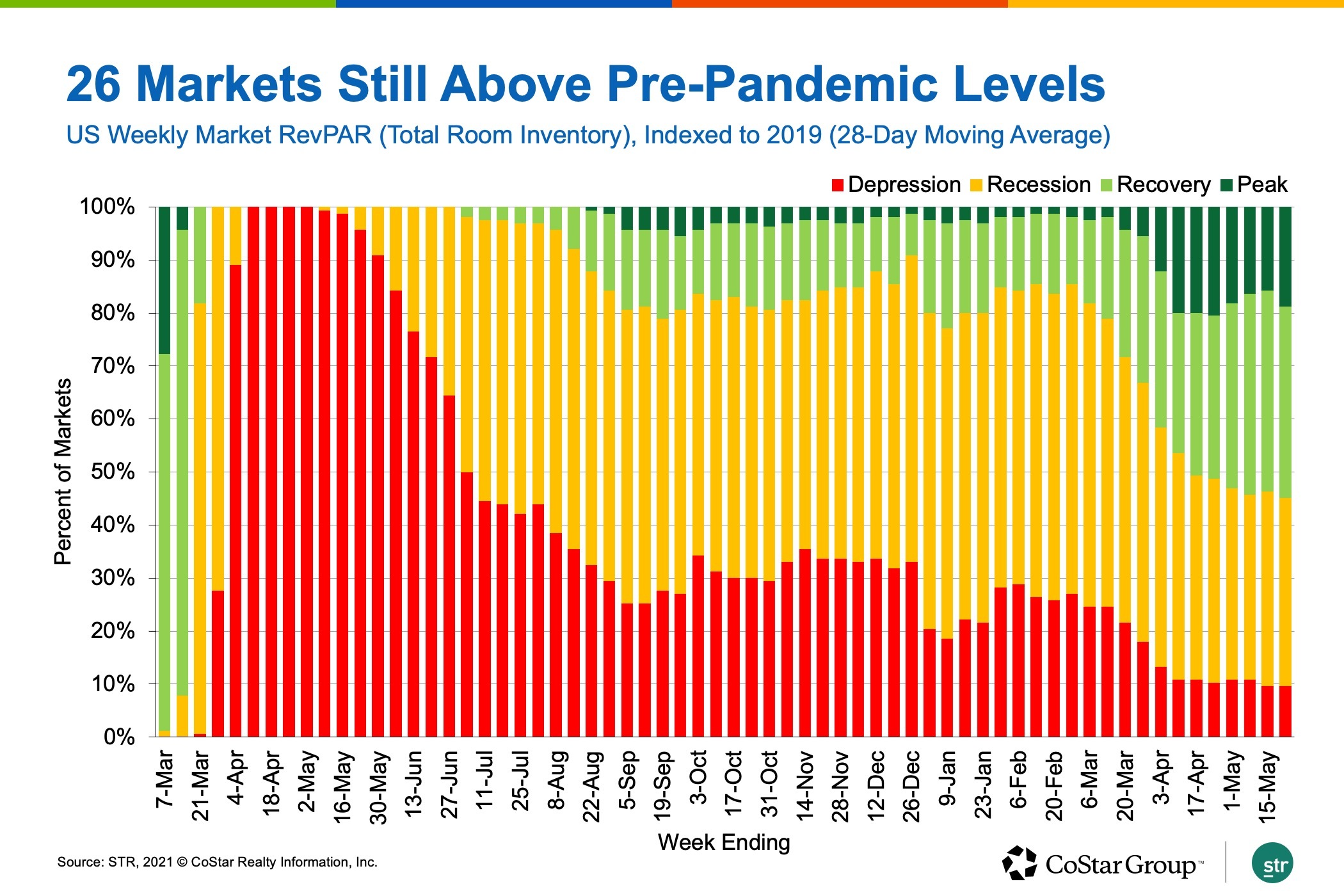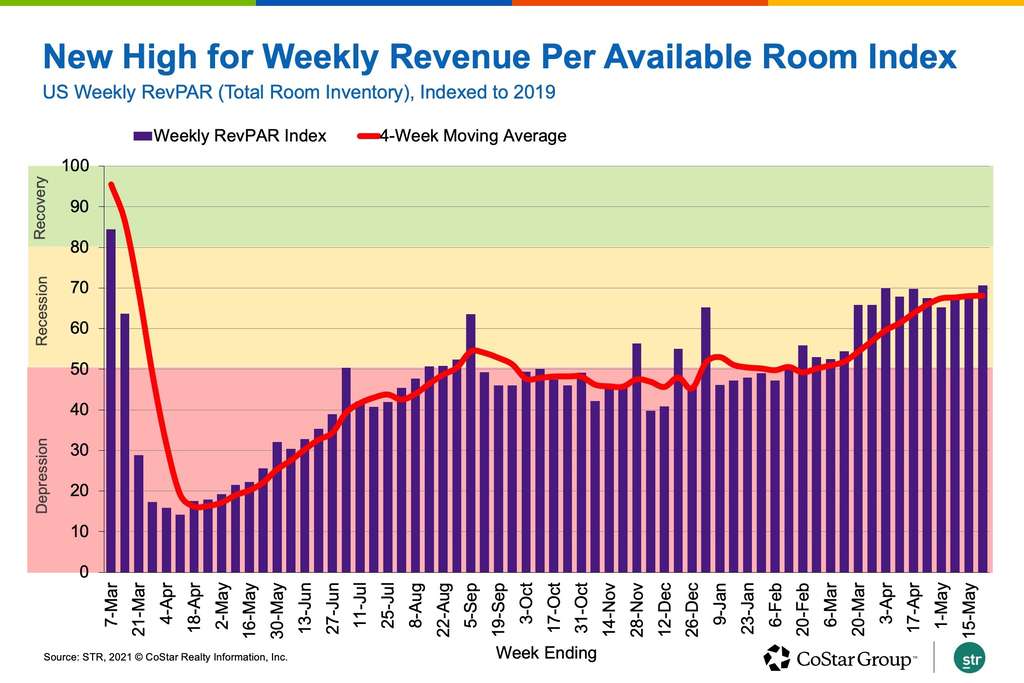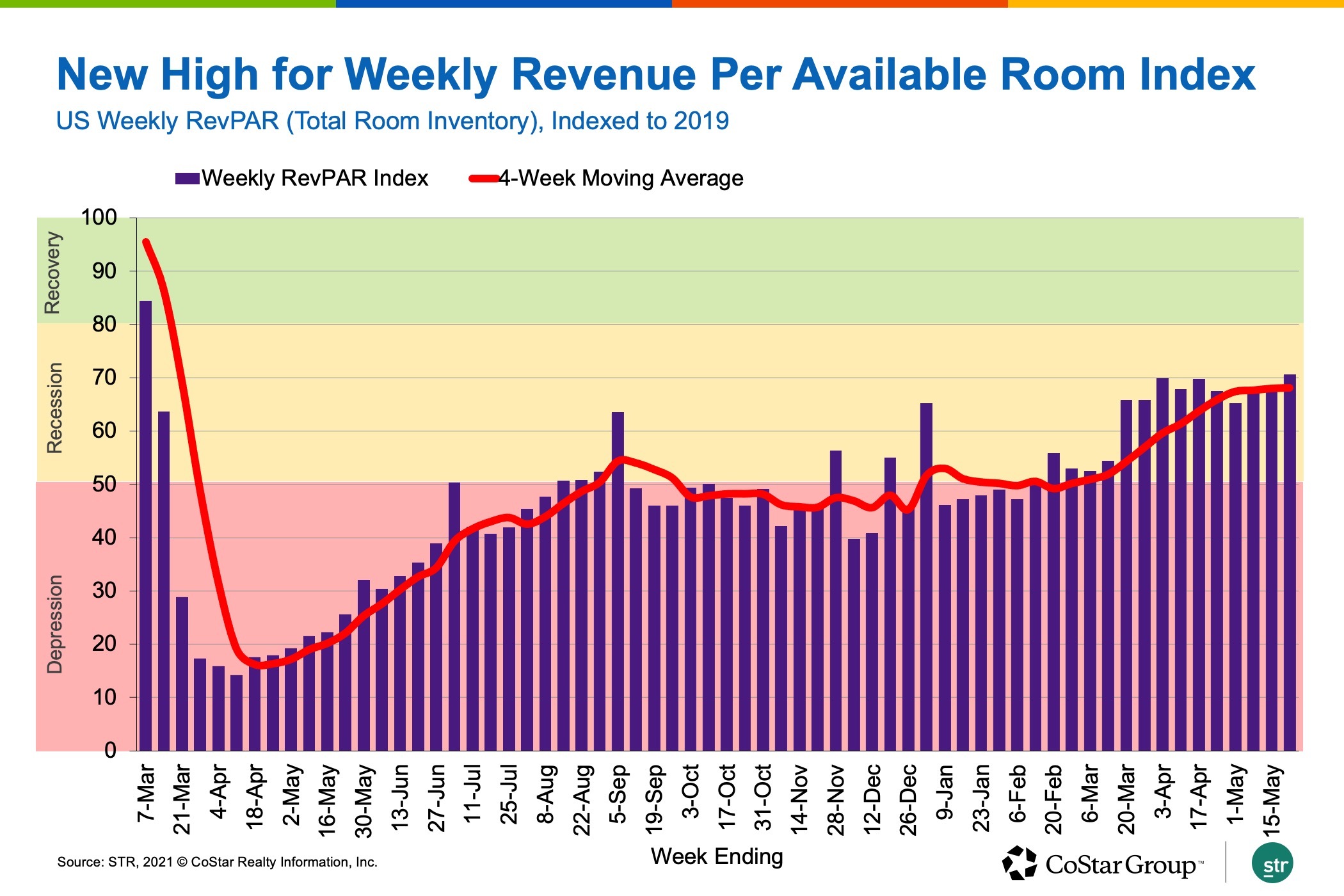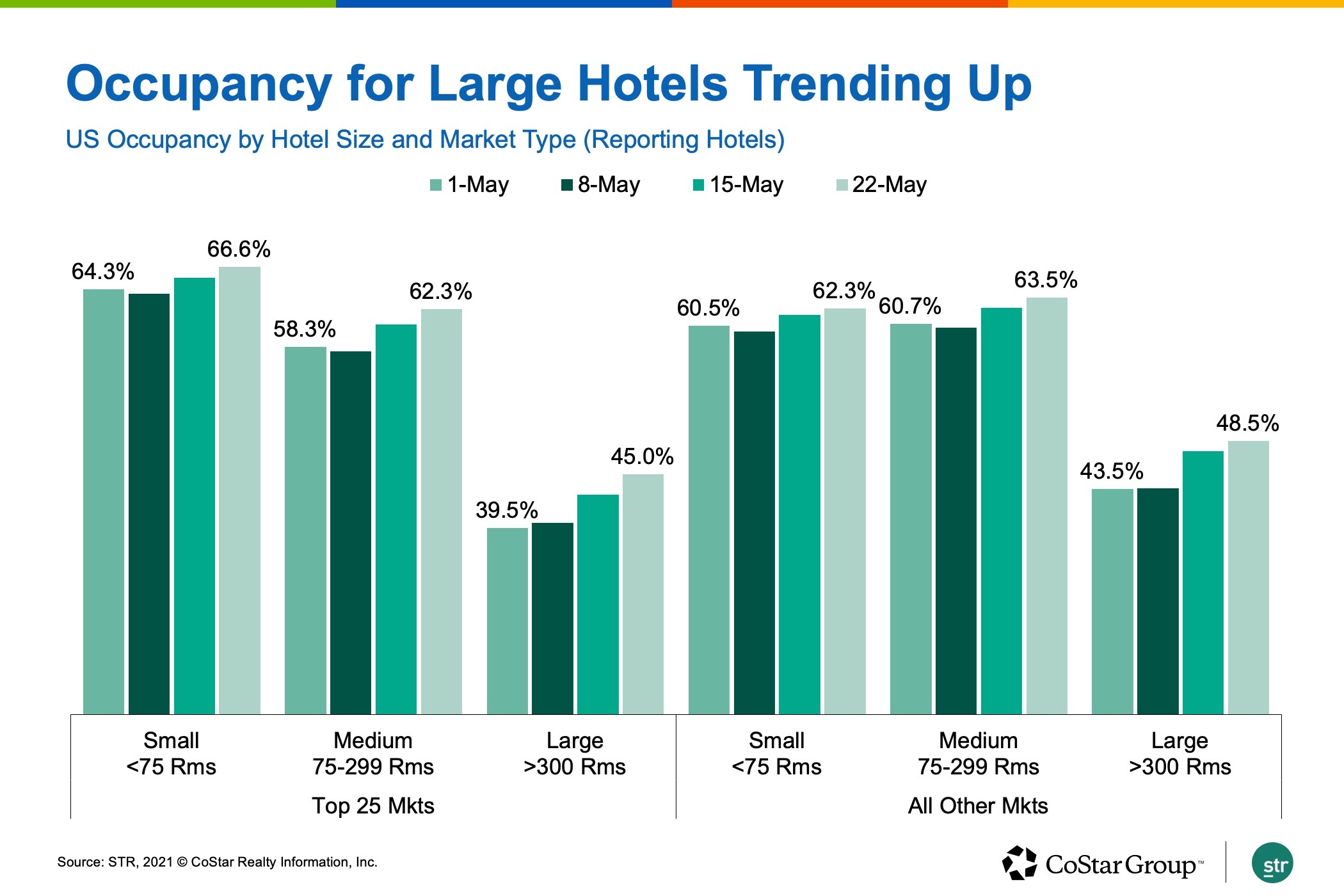US Hotel Industry Demand About 300,000 Daily Rooms Off 2019 Pace
More Than 3.3 Million Rooms Sold Each Day During Week of May 22
The U.S. hotel industry recorded its best performance in 62 weeks, selling more than 3.3 million rooms each day of the week ending May 22 — a level reminiscent of November 2019, but still 300,000 rooms shy of the rooms sold daily in May 2019.
U.S. hotel occupancy surpassed 60% for the first time since early March 2020, led by the top 25 markets, where each hotel on average sold 15 more rooms than the previous week.
Demand for hotel rooms increased in more than 70% of U.S. hotel markets.
The demand growth was greatest in New York City, despite that market selling less than 50% of the rooms it sold over the same week in 2019.
New York also leads the country in the number of hotels that remain closed. Nearly one quarter of all closed hotel rooms in the U.S. are in New York City, where occupancy for the week was 41% on a total room inventory basis.
The San Diego and Los Angeles markets ranked second and third in demand gains. In nearly half of the top 25 markets, demand was at least 80% of the level achieved over the same week in 2019.
The top 25 markets reported growth in all key performance metrics — demand, occupancy, average daily rate and revenue per available room — for the week. However, compared to 2019, ADR in the top 25 markets was still down 23%, and RevPAR was down 43%.
STR’s latest Market Recovery Monitor, which measures the most recent weekly performance against the comparable week in 2019, shows that more than half of U.S. markets are in the “recovery” or “peak” categories — achieving revenue per available room that was 80% or more of 2019 levels.
For the week ending May 22, 31 markets posted RevPAR that was higher than the same week in 2019, and RevPAR in 60 markets was at least 80% of 2019 levels.
Sixteen markets — the lowest number since the start of the pandemic — were in the “depression” category for the week, posting RevPAR that was less than 50% of 2019 levels. These markets included New York, San Francisco, Boston and Washington, D.C., which made up the bottom four in terms of absolute RevPAR for the week. Occupancy for the week was 39% in San Francisco, 44% in Washington, D.C., and 45% in Boston.
Weekly RevPAR for the overall U.S. hotel industry was 71% of what it was during the same week in 2019, which is considered “recession” territory.Weekly Performance Highlights
Miami and Tampa led the U.S. top 25 markets with occupancy greater than 70% for the week on a total-room-inventory basis, accounting for temporarily closed hotels.
Leisure destinations continued to outperform the industry as a whole.
The Florida Keys and Charleston, South Carolina, posted occupancy above 80%, and 11 other markets had occupancy of 70% or more, based on total room inventory. Overall, 58% of U.S. hotels reported occupancy above 60% for the week — the most since COVID-19 derailed travel in early 2020.
Weekday occupancy reached a new pandemic-era high of 55%, or 53% accounting for temporarily closed hotels. Weekend occupancy was slightly lower than the previous week’s pandemic-era high, but remained at 73%.
Large hotels, with 300 or more rooms, continued to be a major drag on industry performance, particularly in the top 25 markets. Excluding those 1,600-plus large hotels, weekly occupancy was 62% across the industry.
Ten markets posted ADR gains of 10% or more, and 65% of all markets had weekly ADR gains. Industrywide, ADR was up 1.7% week over week.
About STR
STR provides premium data benchmarking, analytics and marketplace insights for the global hospitality industry. Founded in 1985, STR maintains a presence in 15 countries with a corporate North American headquarters in Hendersonville, Tennessee, an international headquarters in London, and an Asia Pacific headquarters in Singapore. STR was acquired in October 2019 by CoStar Group, Inc. (NASDAQ: CSGP), the leading provider of commercial real estate information, analytics and online marketplaces. For more information, please visit str.com and costargroup.com.
